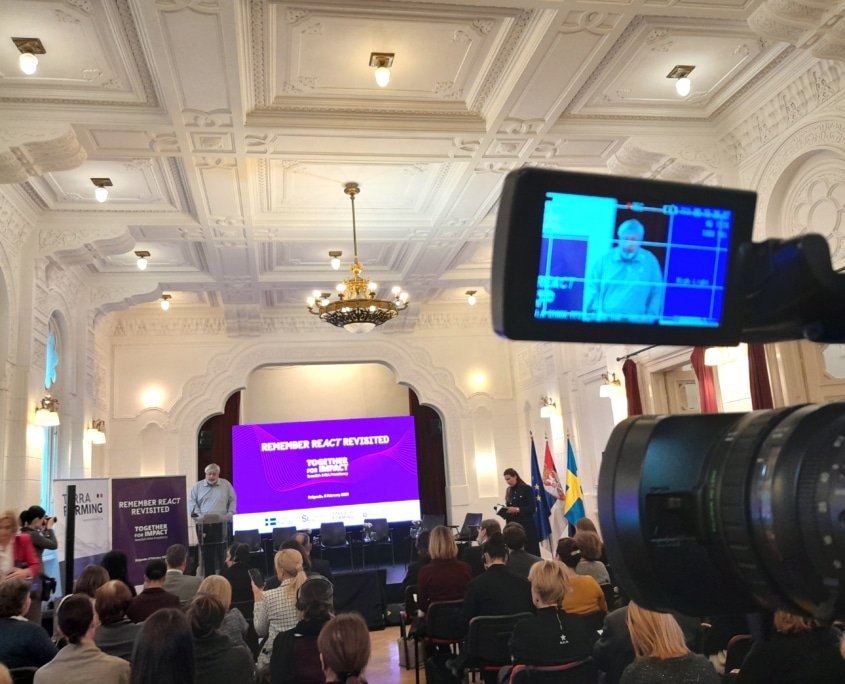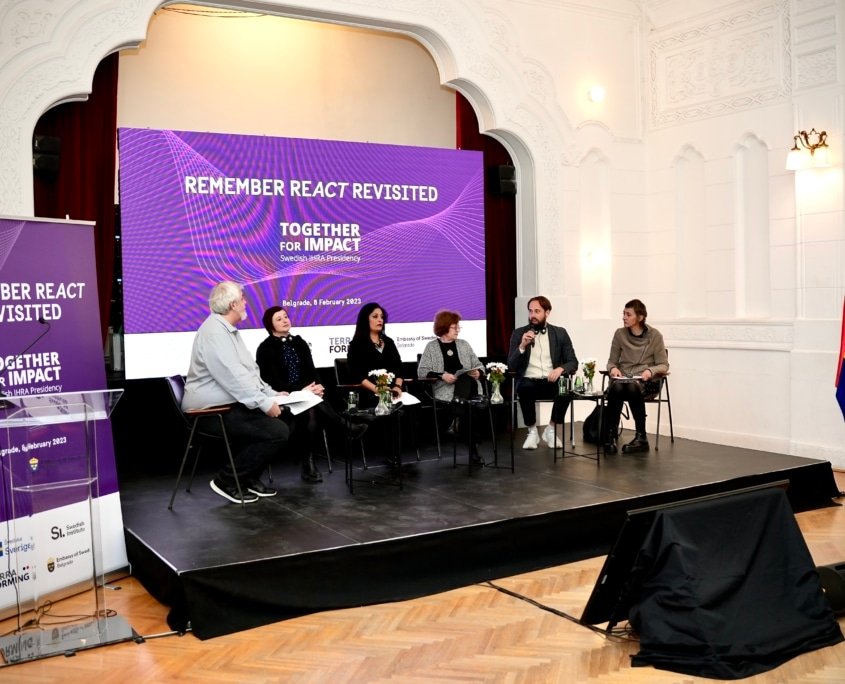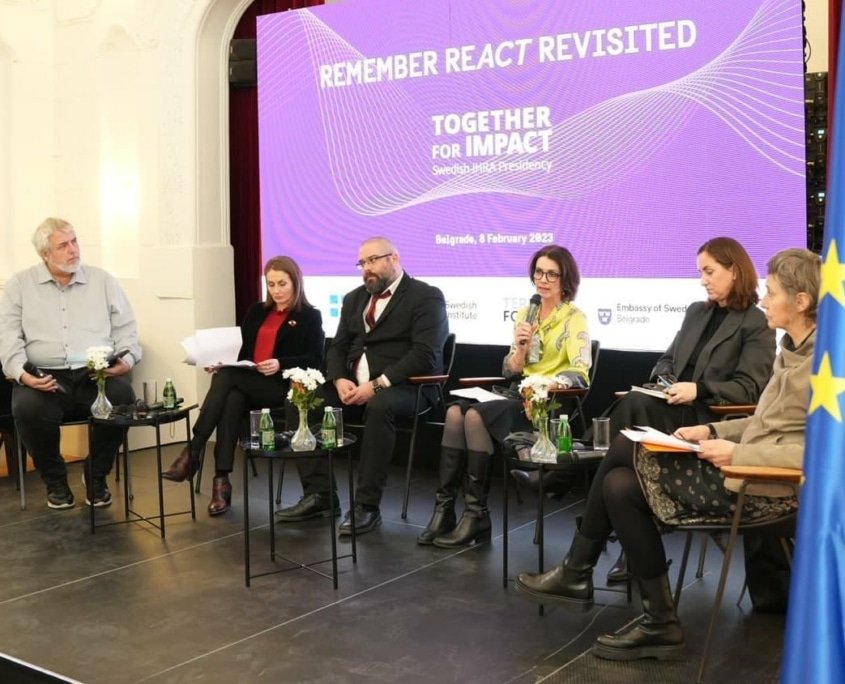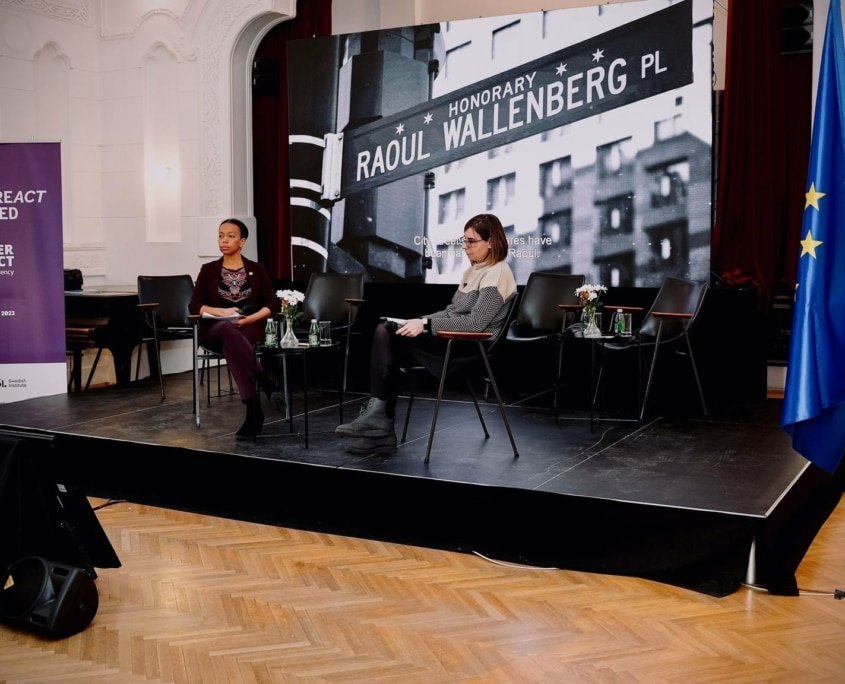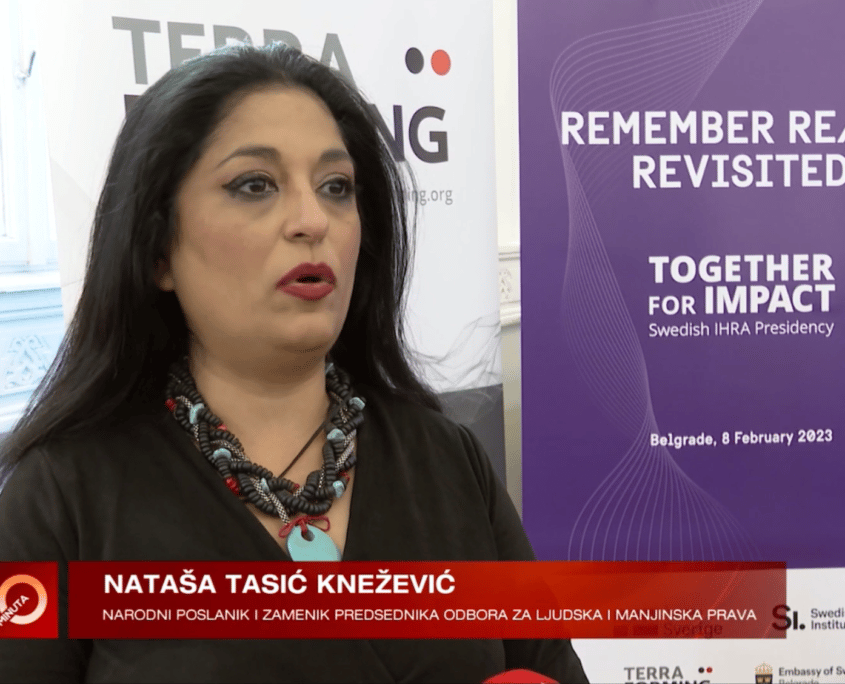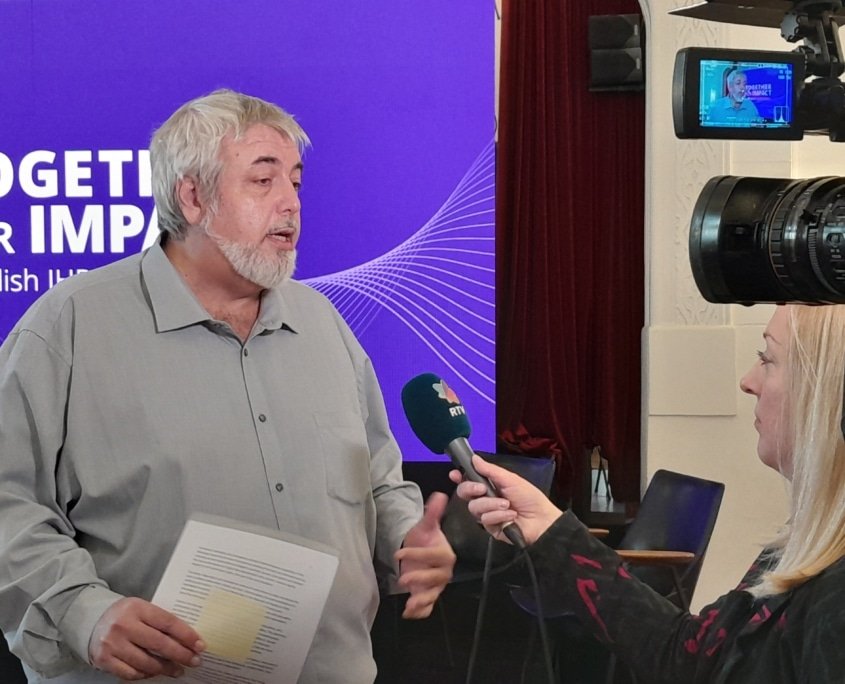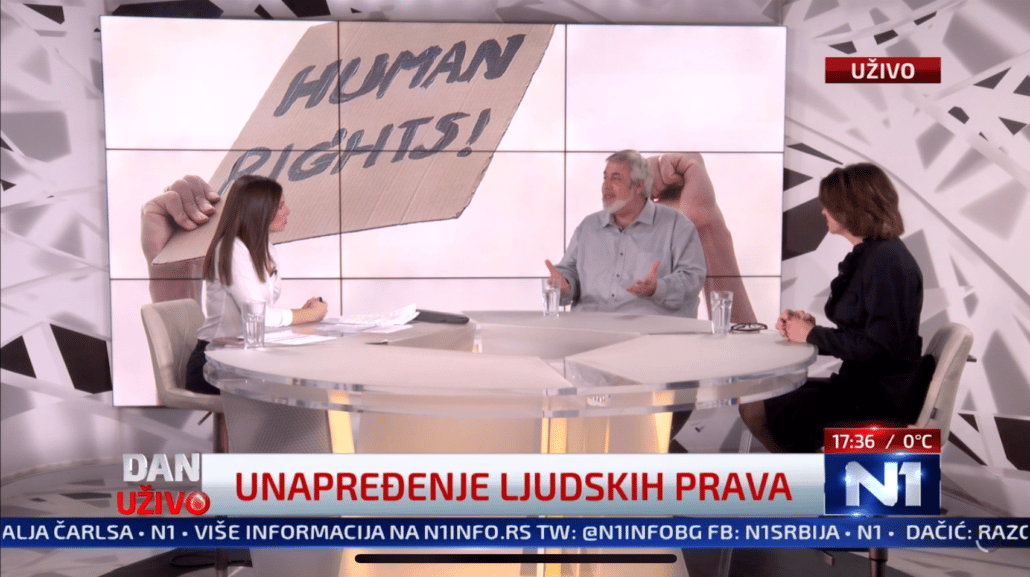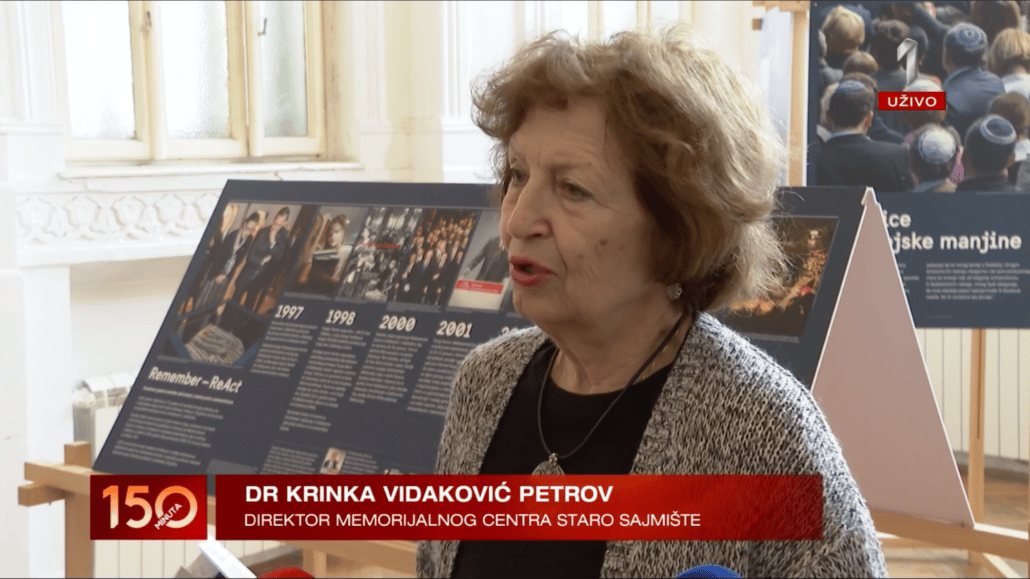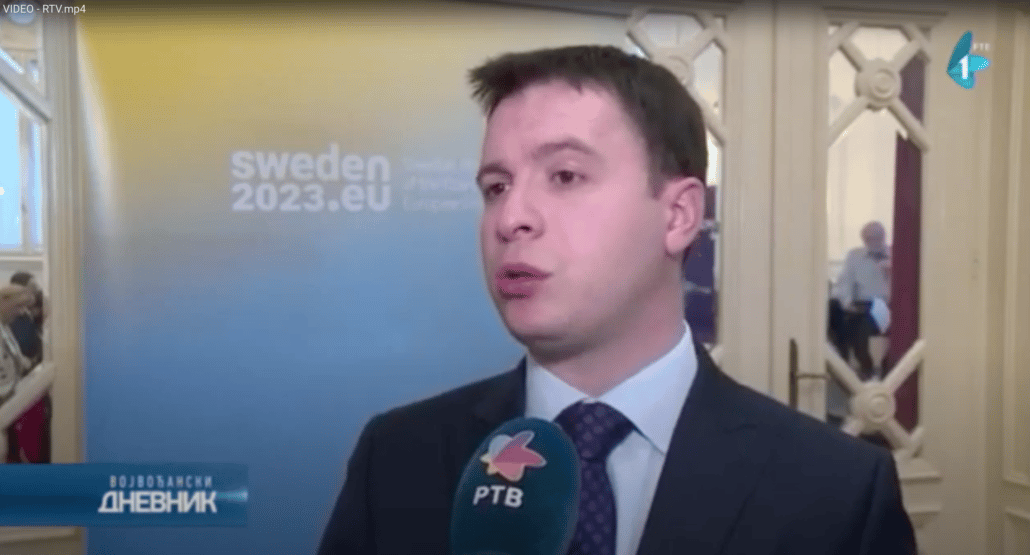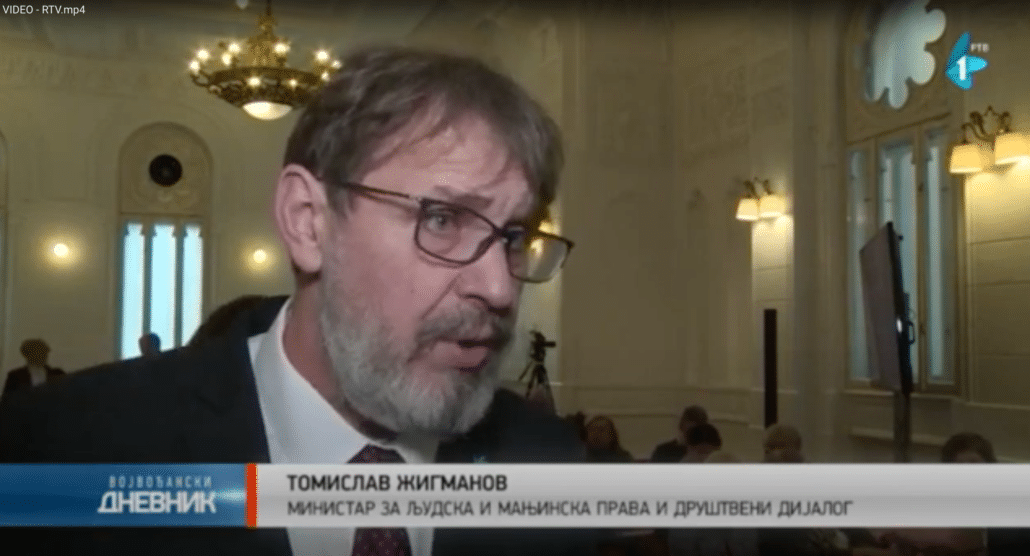In the introduction to the discussion, Nevena Bajalica emphasized the importance of the working definition of antisemitism by the International Holocaust Remembrance Alliance IHRA:
adopted by the IHRA in 2016. The definition was additionally accepted by 39 states through special acts of parliaments or governments. Among them is the Republic of Serbia, which accepted the working definition of antisemitism by the Government decision in January 2020. . The IHRA definition of antisemitism has been accepted by international institutions such as the United Nations, the European Parliament, the European Council, the European Commission, the Council of Europe, and many other state institutions, universities, and organizations around the world. The first European strategy for the fight against antisemitism and the promotion of Jewish communities, which was adopted by the European Commission a year ago, is based on this definition and obliged all members of the European Union to create National Strategies. The Terraforming initiative is based on the idea of starting a process that will lead to the creation of strategies for countering antisemitism in Serbia. In September 2022 Terraforming founded the Center for Combating Antisemitism and Intolerance. One of the Center’s first tasks is to raise awareness of the Serbian public, government, and policymakers to the fact that antisemitism exists in Serbia, just like in other countries, and that it is extremely important to work on addressing and preventing antisemitism.
There are forms of antisemitism specific to national and local environments. Examples specific to Serbia are antisemitic narratives related to the NATO bombing of Yugoslavia or Israel’s recognition of Kosovo’s independence. On the other hand, many anti-Jewish stereotypes and myths are spread around the world, such as the typical myths about “powerful Jewish families that control banks, media, state policies, etc.” Such stereotypes are widespread even among ordinary citizens who often do not recognize antisemitic prejudices and other xenophobic attitudes in themselves. Also, there are radical organizations and groups – from the extreme right, neo-Nazis, to “anti-globalists” and xenophobic organizations that, apart from the Jewish community, target various minority and vulnerable groups, such as Muslims, immigrants, and refugees. In Serbia, the LGBT community and Roma are especially targeted by radical groups and exposed to violence.
Miško Stanišić raised the issue of distortion of history and misuse of the culture of memory:
Holocaust distortion is the biggest challenge we face today, and it is widespread all over the world, in different forms. A current example of the manipulation and misuse of World War II history that directly promotes violence and spreads fear is the propaganda term “denazification of Ukraine” used to justify Russian aggression against Ukraine. In Serbia, we witnessed that some of the incidents and violence against Serbs in Kosovo were described by some officials as “the night of broken glass” or “the last European ghetto.” These are clear examples of inappropriate abuse of the Holocaust for political and propaganda purposes.
The distortion, misuse, and manipulation of this history are always antisemitic at its core. Unfortunately, in the contemporary Serbian culture of remembrance, there are examples of abuse of Jewish victims for nationalist propaganda. The fact that a much larger number of professionals and stakeholders in the fields of culture, science, and education do not recognize examples of distortion, abuse, and manipulation of the Holocaust memory shows that they do not understand how such abuses are inappropriate and antisemitic, and how, after all, such abuse of history humiliate and abuse Serbian victims, too. All this shows the poor state of knowledge, understanding, and capacity to deal with antisemitism in Serbia.
One of the problems seems to be a general lack of knowledge about antisemitism, which is an obstacle to its recognition and identification. Thus, the first necessary prerequisite for exposing, debunking, and countering antisemitism with appropriate measures has not been fulfilled, that is, we are faced with a lack of routines, policies, and strategies for combating antisemitism. As a result of all this, antisemitism is not recognized as a problem in Serbian society.








